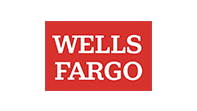National Urban League: Dedicated to Economic Empowerment
In recognition of Black History Month, Marc H. Morial, president and CEO of the National Urban League, reflects on the state of economic justice in the U.S.

National Urban League: Dedicated to economic empowerment
‘Viewpoints’ invites guest authors from outside of Wells Fargo to share an important perspective related to their work. Today, we welcome Marc H. Morial, president and CEO of the National Urban League.
Four years after the passage of the Civil Rights Act — and just two weeks before his assassination — Martin Luther King Jr. told a rally of Memphis, Tennessee, sanitation workers, “For we know now that it isn’t enough to integrate lunch counters. What does it profit a man to be able to eat at an integrated lunch counter if he doesn’t have enough money to buy a hamburger?”
Years later, Vernon Jordan, my predecessor at the National Urban League, would echo that sentiment: “The Johnson era was about the right to check into the hotel. Clinton’s era was about getting the right kind of education to get the job, so you would have the money to check out.”
Racial justice is economic justiceAccording to the most recent Federal Deposit Insurance Corporation survey, an astonishing 17 percent of black households are unbanked — meaning no one in the household has a bank account — and 30 percent are underbanked — meaning the household has an account but uses alternative financial services. In contrast, the white unbanked and underbanked rates sit at 3 percent and 14 percent, respectively.
Often relying on predatory services like check-cashing centers, pawnshops, and payday loans, these unbanked and underbanked households can pay hundreds or thousands of dollars in transaction fees. Some estimates place this “surcharge on the poor” as high as $8 billion per year.
“Anyone who has ever struggled with poverty knows how extremely expensive it is to be poor,” wrote the American novelist and playwright James Baldwin nearly 60 years ago, and it remains just as true today.
The National Urban League’s 90 affiliates in 36 states — known collectively as the Urban League Movement — are first responders dedicated to economic empowerment and elevating the standard of living in historically underserved urban communities.
These are the very people whom King, Jordan, and Baldwin spoke of.
The racial wealth gap is just as stark. Median wealth among white Americans is 23 times the median wealth for black Americans, according to the most recent edition of State of Black America, the National Urban League’s annual report on the social and economic status of communities of color.
Compounding the problem, small black-owned businesses — which are a primary economic driver in communities of color — face significant roadblocks to accessing the resources they need to thrive and grow. Black-owned businesses are less likely to be approved for loans than their white-owned counterparts, and when they are approved, they receive smaller amounts and higher interest rates.
To help change this, the National Urban League has formed a small business lending subsidiary — Urban Empowerment Fund — which provides loans and coaching to minority-owned businesses that are likely to provide jobs and revenue to inner cities and other underserved communities. Wells Fargo, along with many of its financial peers, plays an important role in ensuring the success of the Fund.
The Fund was created to fill a credit gap that has widened in recent years as a result of the continual fallout from the Great Recession, disproportionately impacting many minority-owned small businesses and those operating in underserved communities. The Fund will provide financing and technical assistance to help small business owners create sustainable companies and vibrant communities nationwide across the markets it serves.
Helping underserved urban communities across the country
As part of the National Urban League’s mission, some affiliates operate in or collaborate with Community Development Financial Institutions that deliver responsible, affordable lending to help low-income, low-wealth, and other disadvantaged people and communities gain an access point into the economic mainstream.
These institutions function hand-in-hand with our financial literacy programs helping participants develop skills like managing household budgets, understanding credit ratings, and avoiding predatory lenders.
The Urban League of Greater Pittsburgh, for example, leads the Bank On Greater Pittsburgh initiative, a partnership among local government, financial institutions, and other community-based organizations to develop pathways for underserved individuals to access free or low-cost bank accounts and financial education.
The Knoxville Area Urban League in Knoxville, Tennessee, is a certified CDFI that provides loans to qualified entrepreneurs to start and/or expand businesses in Knox County that will provide jobs, goods, and services that meet the needs of the community. The CDFI targets entrepreneurs who do not qualify for financing at a traditional bank or credit union.
As Donald Bowen, president of the Urban Empowerment Fund, has said, “In many cases, people that do community development work tend to parachute into local communities, do a job, and leave. They come in and complete the transaction, make money off that transaction, but the knowledge transfer, the capacity, and even the money generated in any fee income, generally is taken away and does not stay in the community.”
That’s what the Urban League Movement is working hard to combat, and we need financial institutions, government officials, and community organizations to work with us toward this common goal.

